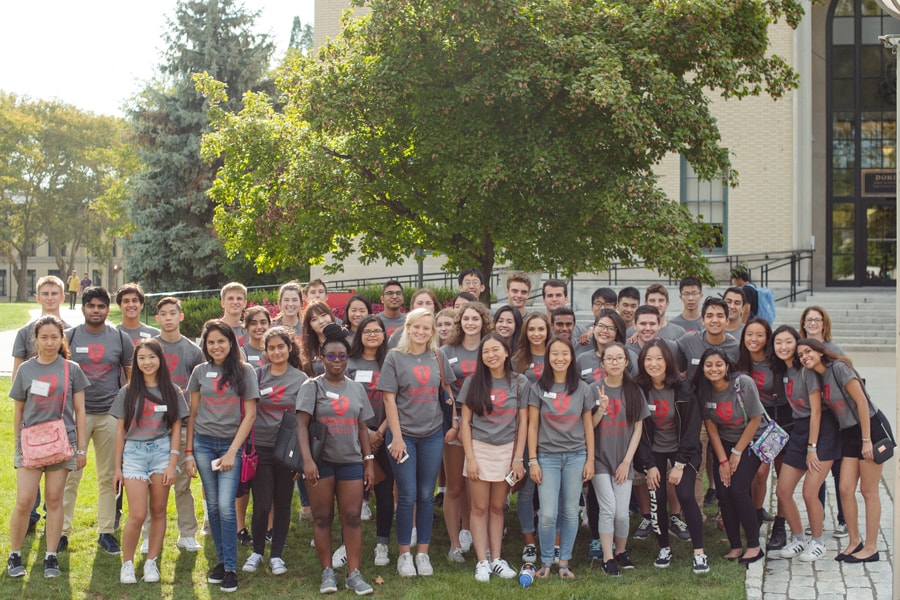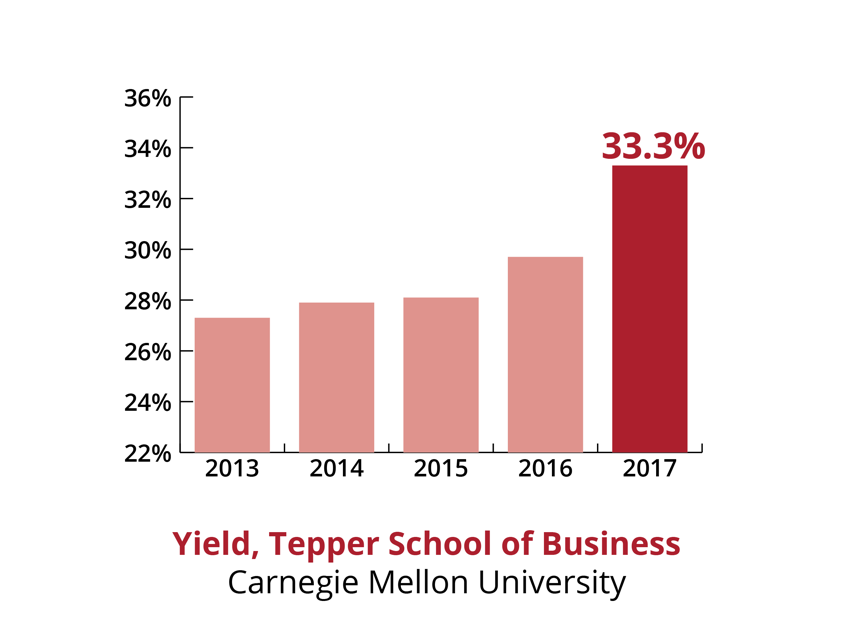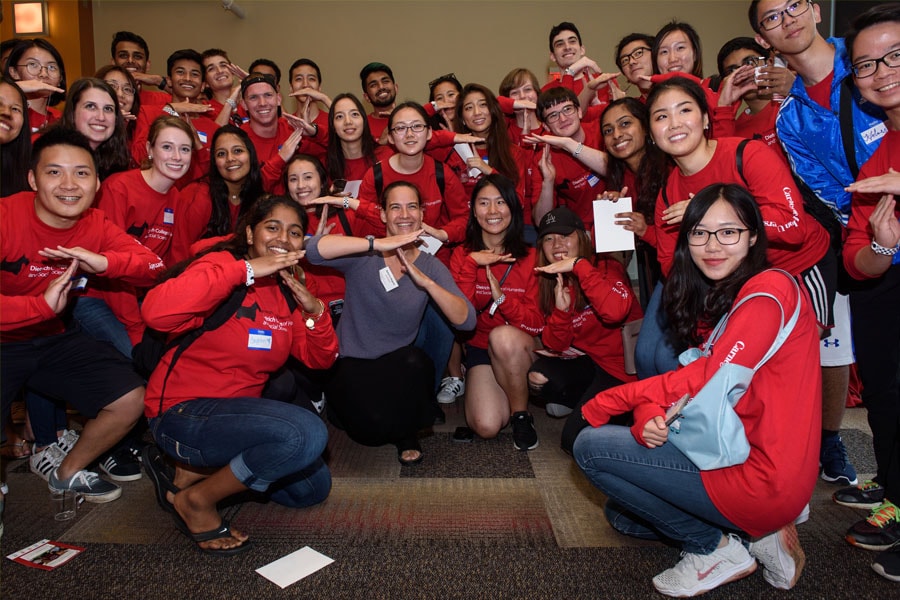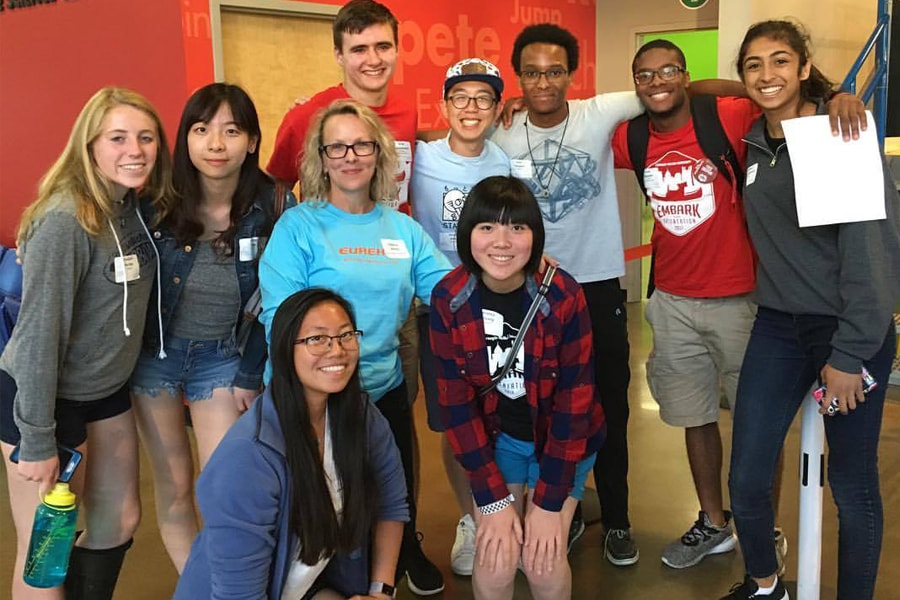
Record Proportion of First-year Women Enroll in Tepper School of Business
- Marketing and Communications
- 412-268-4290
In the Tepper School of Business, 57 percent of incoming undergraduate business students are women, an unusually high representation of women among undergraduate business programs nationwide.
 Robert Dammon, the school's dean, said the sharp increase of 12 percentage points over last year is the result of a deliberate effort and long-term plan that touches every aspect of the student experience: from campus tours, to the admission process, to freshman orientation, to both the faculty and curriculum reflecting the virtues of diversity and inclusion.
Robert Dammon, the school's dean, said the sharp increase of 12 percentage points over last year is the result of a deliberate effort and long-term plan that touches every aspect of the student experience: from campus tours, to the admission process, to freshman orientation, to both the faculty and curriculum reflecting the virtues of diversity and inclusion.
"When you think about the needs of business, they're really converging on the strengths of the Tepper School and Carnegie Mellon University — at the intersection of business, technology and analytics. That's really where we sit as a business school. It's where our program and curriculum are focused. I think that draws in interest from students. It's the type of program that's going to deliver the skill sets people need to be successful in 21st century business," Dammon said.
"Without commitment from the dean and his leadership team no meaningful or sustainable change would have occurred," said Leanne Meyer, executive director of the Tepper School's Accelerate Leadership Center. "Gender and women's initiatives are spoken about as a component of the strategic business plan, funding has been allocated and stakeholders are accountable for delivering on these initiatives. This communicates that gender is a strategic business issue, not a women's issue."
"The Tepper School's philosophy is to provide the best undergraduate experience not only academically but also personally and professionally," said Burton Hollifield, the PNC Professor of Finance and head of the Undergraduate Business Administration program. "Creating this 'whole student approach' is a great attraction for students."
One program introduced over the past year is Tepper Community Conversations, an opportunity for undergraduate students and faculty members to discuss classroom-based issues and ideas, as well as personal and professional experiences. Hollifield said students told faculty they preferred to be placed on project teams rather than make self-selections.
"Typically, when you ask students to form a team and work on a project, you get clusters of students that all have similar backgrounds or similar strengths or similar things they like. But when you are in the workplace, you have to work in teams with many different people of different backgrounds," Hollifield said.
The Tepper School approach of inclusion focuses on how to "de-bias" the organization instead of individuals by monitoring and measuring how systems and processes affect a woman's ability to be admitted and then to thrive.
Colleen McMullen, executive director for community and inclusion at the Tepper School, said, "When I walk the halls, I'm not counting how many women and underrepresented minority faces I see. I am interested in the sense of community we are creating here."


